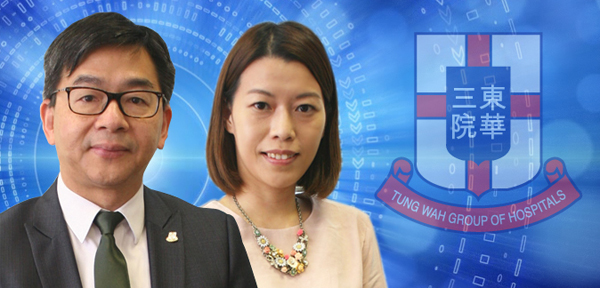 |
The Tung Wah Group of Hospitals (TWGHs) has been actively supporting medical-social collaboration in
Hong Kong. The Electronic Health Record Sharing System (eHRSS) plays a useful role in the delivery and
development of the group’s services in the community.
|
Mr Edward Lao,
Principal Information Technology Manager,
Tung Wah Group of Hospitals
|
Miss Angela Wun,
Community Services Officer
(Elderly services II),
Tung Wah Group of Hospitals
|
|
|
| |
As one of the largest charity organisations in Hong
Kong, TWGHs provides a wide spectrum of social
services catering to the needs of local families,
children and youths, the elderly and the disabled.
“The TWGHs management is very supportive of
eHRSS. For better synergies of services to benefit
patients, more than 70 of our service units are now
using the system,” said Mr Edward Lao, Principal
Information Technology Manager of TWGHs.
These service units cover medical clinics, elderly
homes and day care centres, home care and
community support services centres, occupational
rehabilitation centres and special counselling service
centres. They are directly operated by TWGHs which
has registered with eHRSS as a healthcare provider
(HCP). This is in addition to the five Tung Wah
hospitals which are operating under the Hospital
Authority (HA), which is also an HCP under eHRSS.
|
|
| |
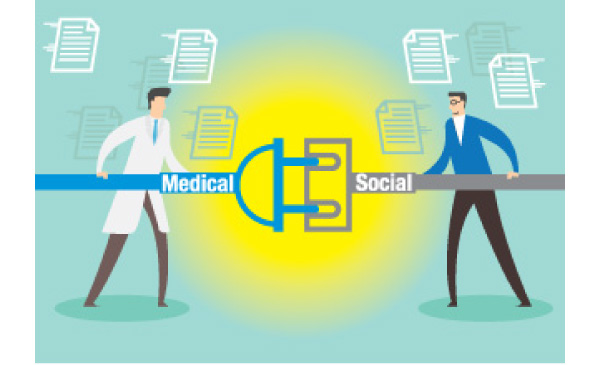 |
|
TWGHs has been actively supporting
medical-social collaboration in Hong Kong
|
| |
|
Mr Lao said TWGHs believes electronic health record (eHR) sharing can benefit the development of its
services.
|
| |
|
Taking medical care for example, he said, “To fulfil the ideal of patient-centred care, we need to
consolidate eHRs from different medical institutions so that our healthcare practitioners can have
comprehensive information to ensure patients receive proper treatment.”
|
| |
Integration of eHRSS and Community Services
Medical care aside, eHRSS usage mainly covers three areas
in TWGHs’ community services: elderly care, rehabilitation,
and youth and family services.
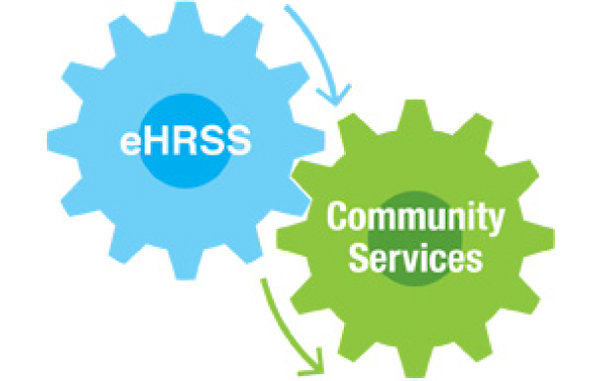
Miss Angela Wun, Community Services Officer (Elderly services II) of TWGHs, said
the integration of eHRSS and service delivery is important, as it
helps them provide holistic and individualised care according
to patients’ healthcare needs, in particular for the elderly.
“Aging is a long process and elders will undergo a lot of
changes in their physical conditions. We need accurate
information about their medical history and the medications to
develop care plans and provide support services most
suitable for them.”
|
|
| |
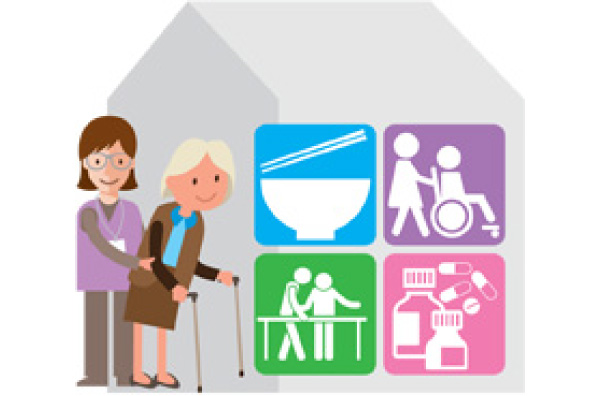 |
|
eHRSS helps TWGHs deliver holistic and individualised care to elders according to their healthcare needs
|
| |
TWGHs has joined Government programmes for the elderly, such as
the “Dementia Community Support Scheme” and the “Pilot Scheme on
Community Care Service Voucher for the Elderly”. The former provides
community support services for elderly with dementia through a
medical-social collaboration model between the Government, HA and
non-governmental organisations (NGOs), whereas the latter aims to
provide the elderly with more choices of community care services. In
these programmes, the eHRSS platform has contributed by making
available patients’ medical records useful for service centres in
providing services to programme participants.
“Another example of eHRSS application is the smoking cessation
counselling service run by us. By making reference to service
recipients’ medication history in eHRSS, our healthcare practitioners
can make proper prescriptions to help them quit smoking,” Miss Wun
said.
|
|
|
TWGHs has also participated in several Public-Private Partnership (PPP) programmes which use the
eHRSS platform to facilitate the sharing of essential patient data. These include the Radi Collaboration
Project, the Haemodialysis PPP, the Patient Empowerment Programme and the Colon Assessment PPP of
HA, as well as the Colorectal Cancer Screening Pilot Programme of the Department of Health (DH).
|
| |
|
“From these experiences, we understand the importance of eHR sharing. It can save us a lot of time in
transferring information, while enabling healthcare practitioners to have a better picture of patients’ health
conditions,” Mr Lao remarked.
|
| |
|
He said TWGHs’ policy is to register new service units with eHRSS if their services involve using medical
records. There is also plan for the Chinese medicine service units and the future Chinese medicine inpatient
ward in the Kwong Wah Hospital operated by the group to join the system according to the timeframe of
Stage Two Development of eHRSS.
|
| |
Opportunities and Challenges in eHRSS
Recently, eHRSS access has been enabled for more healthcare
professional groups, such as pharmacists and
physiotherapists, working at HA, DH and local private hospitals.
On this, Mr Lao is looking forward to the extension to NGOs
which provide elderly care, rehabilitation and related support
services.
While supporting the sharing of Chinese medicine information in
Stage Two eHRSS, Mr Lao said the challenge lies in
standardising the workflow through the use of clinical glossary
and technical specifications, and ensuring compatibility of an
HCP’s system infrastructure to support the long term
development of eHRSS.
On a general note, Mr Lao pointed out that as eHRSS further
develops, medical professionals and patients will have high
expectation of the system.
|
|
| |
 |
|
More service units of TWGHs will register with eHRSS
|
| |
|
“The comprehensiveness, timeliness and security of data will become increasingly important. It involves system security and data quality management from all sources,” said Mr Lao. He hopes the Government will continue its work on these areas and provide related support to healthcare institutions.
|
| |
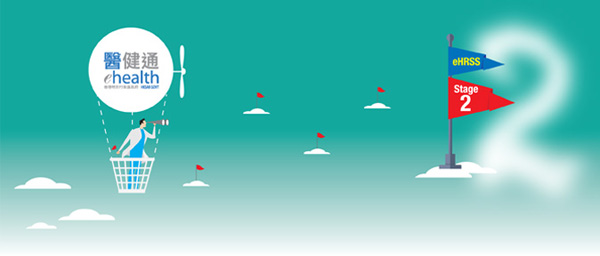 |
|
As eHRSS further develops, healthcare professionals and patients will have high expectation of the system in fully realising the benefits of eHR sharing
|
| |








